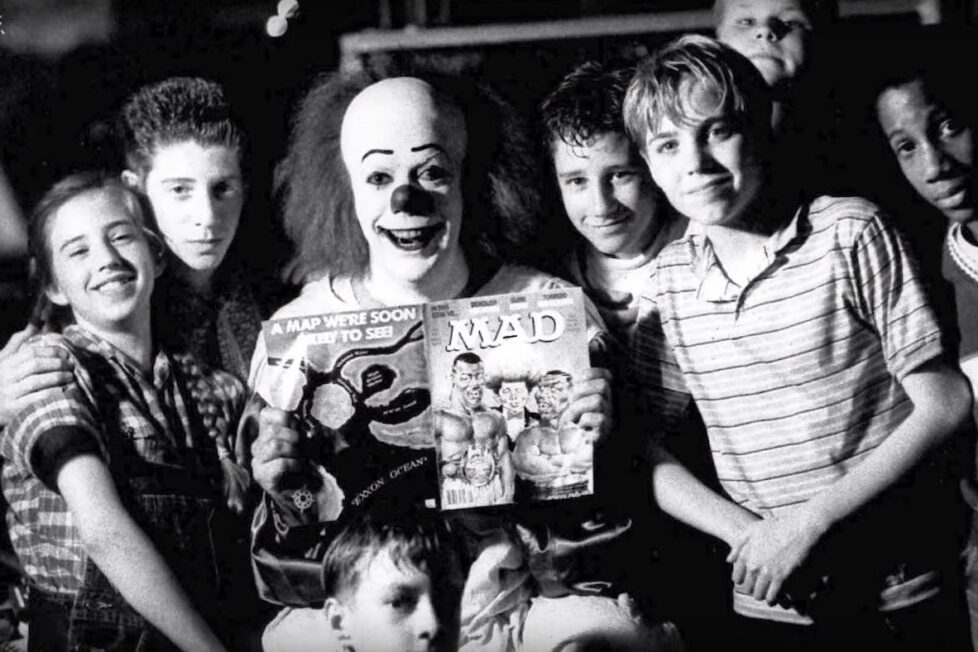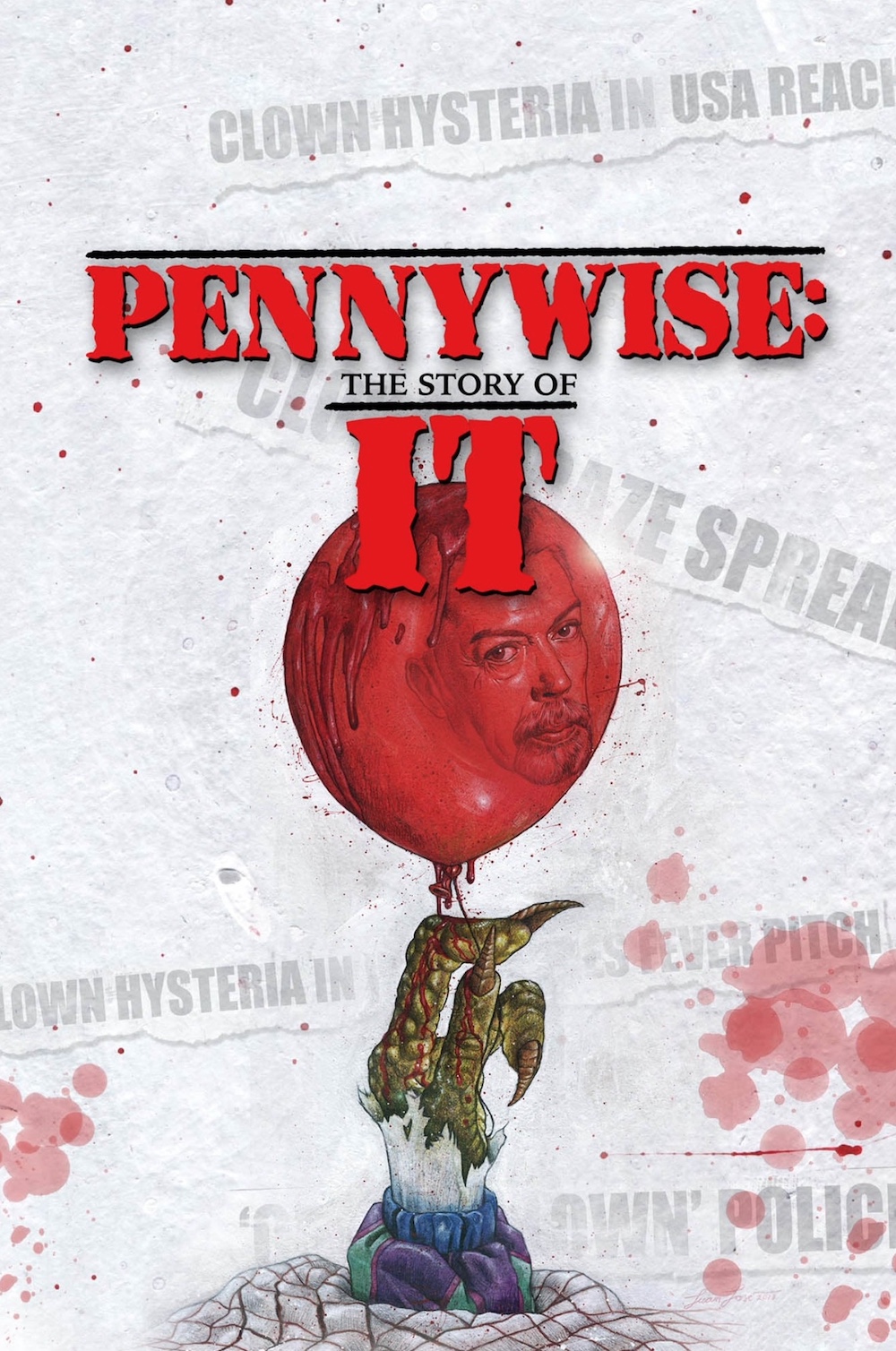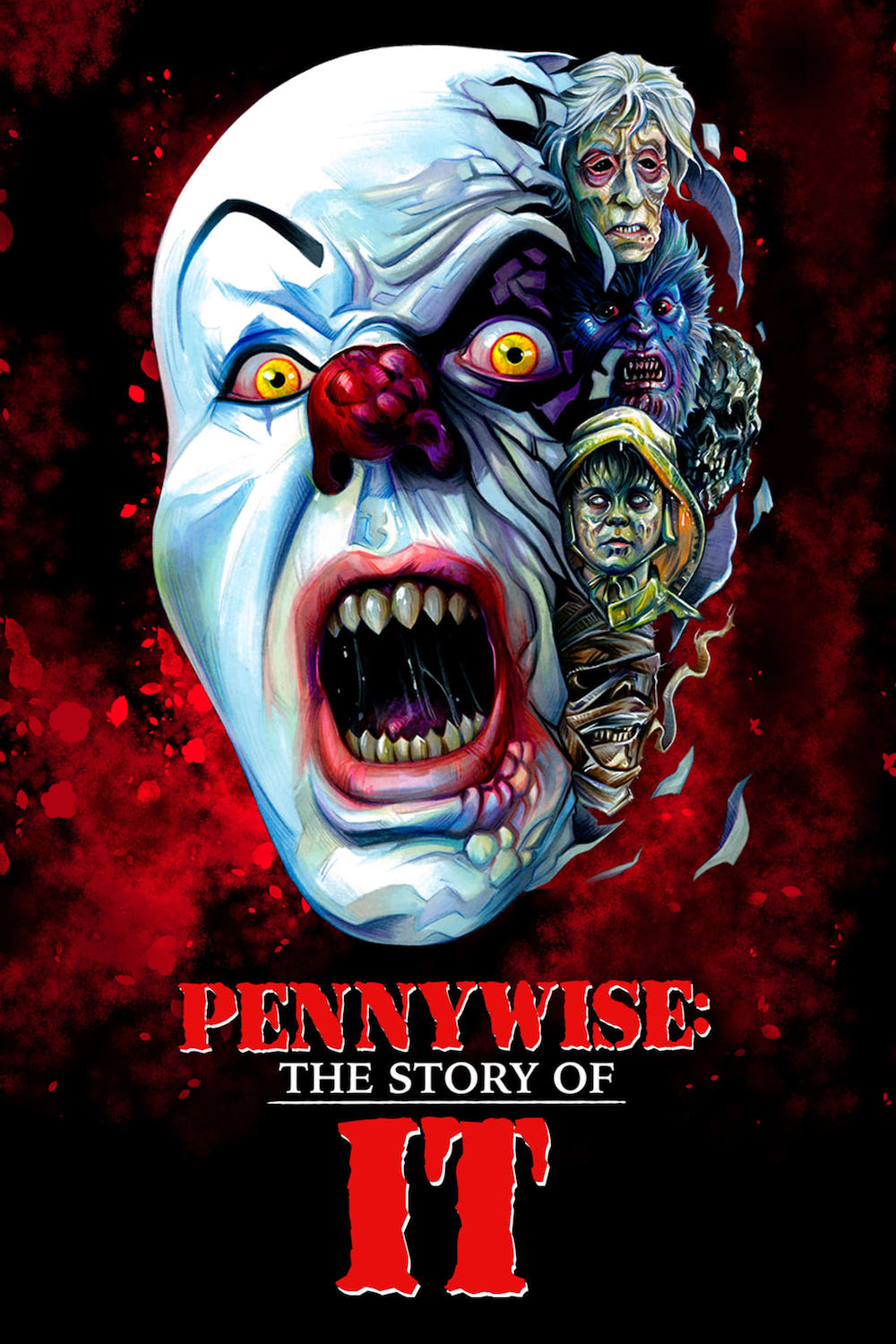PENNYWISE: THE STORY OF IT (2021)
A documentary on the making of iconic TV miniseries It (1990), based upon the Stephen King novel about a supernatural clown terrorising a small town...

A documentary on the making of iconic TV miniseries It (1990), based upon the Stephen King novel about a supernatural clown terrorising a small town...


Stephen King’s best-selling novel It drew the attention of ABC TV executives wanting to emulate the movie success of Stand By Me (1986), particularly as the Salem’s Lot (1979) miniseries had been so well-received. Could lightning strike twice? Absolutely. It was a hit when broadcast in 1990, scaring a new generation of kids who watched from the assumed safety of their own living rooms.
Pennywise: The Story of It is a two-hour documentary from Dead Mouse Productions, a UK company specialising in comprehensive and loving retrospectives on influential cult films, from You’re So Cool Brewster! The Story of Fright Night (2016) to the upcoming RoboDoc: The Creation of RoboCop.
This fan-funded project, directed by Joh Campopiano and Chris Griffiths, will be of most interest to fans who saw the miniseries 32 years ago. There’s a wealth of nostalgia thanks to its clips mixed with present-day interviews with the cast—from the ageing adult stars to the now middle-aged children (some of whom are now unrecognisable). Behind-the-scenes material has been easily found on YouTube for years, but Pennywise weaves it all together with new ‘talking heads’ and artistic transitions between each of the documentary’s nine parts. There’s almost certainly some footage and photos you haven’t seen before.
It’s a fascinating insight into how It came together for a major cultural event, at a time when accepted wisdom over what TV could achieve was about to change thanks to David Lynch’s Twin Peaks and The X-Files. Screenwriter Lawrence D. Cohen was tasked with condensing King’s 1,138-page tome into just over three hours of TV, before Tommy Lee Wallace (Halloween III: Season of the Witch) was hired to direct after the legendary George A. Romero (Creepshow) passed on the opportunity. It’s said that Romero couldn’t fathom how to make the story palatable within the constraints of what was permitted on US network television at the time.
Despite being held in high regard, the second part of It (when the adults return to Derry) is widely considered inferior to the first part (where they fought Pennywise as kids), so it’s great to see those involved in its making refusing to make excuses for the blatantly obvious. And yet there are interesting explanations for why the adult’s storyline wasn’t as compelling, which basically come down to Cohen not being available to improve a script he’d already spent years working on. Wallace didn’t think the conclusion was up to scratch before shooting began, but in the end, his own last-minute rewrites to have things match the book more was the reason the quality slipped. That and the unfortunate decision to use a stop-motion alien arachnid for the final confrontation underground!

Almost everyone you’d want to hear from participates in this documentary, from the aforementioned Cohen and Wallace to many of the cast members still around to speak about it, from Richard Thomas (adult Bill) and Seth Green (adult Ritchie) to Tim Reid (adult Mike) and Richard Masur (adult Stanley). There’s sadly no sign of Annette O’Toole (adult Bev), but Emily Perkins who played the younger version participates, as does her on-screen abusive father Frank C. Turner. It’s particularly interesting to hear that the young and old cast members mixed together so much, working on ways to make audiences believe they’re seeing the same characters at different stages of their lives. This mostly boils down to them deciding on specific quirks, like fingernail biting or ear lobe pinching.
The documentary also touches on the sad death of John Ritter (adult Ben) and the tragic loss of rising teen star Jonathan Brandis (young Bill), but the big selling point is the participation of the great Tim Curry. He talks about his unforgettable turn as Pennywise, which is still the benchmark for this horror icon, perhaps because he’s more often just an ordinary clown you’d see at real-life children’s parties. The more recent movie Pennywise (Bill Skarsgård) was effective for other reasons but played more into the “evil clown” cliches that developed as a result of Stephen King stoking coulrophobia in audiences. It’s more believable that Curry’s Pennywise could lure children towards him before biting them with razor-sharp teeth, whereas you wouldn’t go within a hundred feet of Skarsgård’s interpretation.
Curry is still recovering from a stroke which left him unable to walk or talk easily since 2012, but he’s nevertheless an invaluable part of this documentary and his anecdotes about playing the famous clown are always great to hear. There’s a wealth of B-roll with Curry on set being filmed, or larking around in the make-up, which is so entertaining to see, and everyone has nothing but praise for what he brought to the character. It’s undeniable the miniseries wouldn’t have been half as frightening without him.
Amazingly, the documentary even made me feel kinder towards the infamous fake spider that dominates the climax and proved so laughable and disappointing as the big climax. It still doesn’t work and it’s a shame the makers didn’t realise they needed to keep Curry around as Pennywise for the final confrontation (a misjudgement the later movie corrected), but seeing how the spider creature was designed and built makes it seem more impressive. It just doesn’t work on camera due to budgetary limitations and where VFX was in the late-1980s.
Overall, Pennywise: The Story of It is another triumph for Dead Mouse and the company’s commitment to making definitive documentaries of genre classics. It’s lovingly crafted and insightful so the two hours fly by thanks to a keen sense of pacing. Even if you don’t have a deep nostalgia for this old miniseries (so even getting to see the kids grown up holds no appeal), it’s still a fascinating peek behind the curtain of small-screen horror filmmaking. This is a great way to compliment a viewing of the miniseries, whether you’re a long-time fan of It or not.
UK | 2022 | 126 MINUTES | COLOUR | ENGLISH


directors: John Campopiano & Chris Griffiths.
writer: John Campopiano & Gary Smart.
featuring: Tim Curry, Tommy Lee Wallace, Seth Green, Richard Thomas, Dennis Christopher, Richard Masur, Tim Reid, Bart Mixon, Lawrence D. Cohen, Emily Perkins, Richard Bellis, Brandon Cane, Marlon Taylor, Ben Heller, Jarred Blancard, Frank C. Turner, Adam Faraizi, Gabe Khouth, Chelan Thomas & Chris Eastman.
